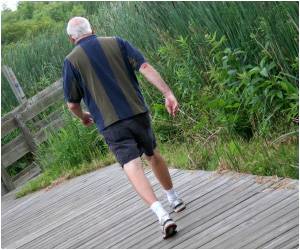Slow walking speed might just help determine the risk of chronic illness, hospitalization and sometimes even death.

TOP INSIGHT
The more risk factors people had for heart disease, the faster was their decline in walking speed. The link between heart disease risk factors and walking difficulties were only seen in people under the age of 78.
The researchers enrolled participants from 2001 to 2004. Follow-up information was taken every six years for younger participants (60-year-olds, 66-year-olds, and 72-year-olds). Information was taken every three years for participants aged 78 and older.
Researchers considered participants' physical activity levels, alcohol consumption, body mass index (BMI, a ratio of weight to height), and ability to think and make decisions. Participants' blood levels of C-reactive protein (CRP) were tested, too. High CRP levels point to a higher risk for heart disease, which remains a serious concern for older people.
The more risk factors people had for heart disease, the faster their decline in walking speed. The link between heart disease risk factors and walking difficulties was only present in people under the age of 78.
Cognitive function (the ability to think and make decisions) did not play a role in the link between risk factors for heart disease and walking limitations. Heart disease risk factors were not linked to balance problems or the ability to do the chair stand exercise.
The researchers concluded that reducing heart disease risk factors with appropriate treatments might help "younger" older adults maintain their physical function.
 MEDINDIA
MEDINDIA


 Email
Email










